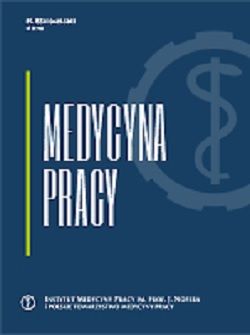
- Psychometric properties of the Polish adaptation of Technostress Creators and Technostress Inhibitors Scale
The use of information and communication technologies by employees of organizations may cause technostress for their users. The sources of technostress in organizations are techno-overload, techno-invasion, techno-complexity, techno-insecurity, techno-uncertainty. An organization may also have technostress inhibitors that counteract the experience of technostress.
- A study of character strengths, work engagement and subjective well-being in Chinese registered nurses
Nurses displayed low levels of subjective well-being and high turnover intention. How to enhance the subjective well-being and decrease the turnover rate of nurses is of great importance. However, little is known about whether work engagement mediates between character strengths and subjective well-being. The study aims to explore character strengths, work engagement and subjective well-being in nurses, and to determine whether work engagement plays a mediating role between the relationship.
- Personality modifies the effect of post-traumatic stress disorder (PTSD) and society support on depression-anxiety-stress in the residents undergone catastrophic flooding in Henan, China
To analyze the impact of the flood disasters, social support and personality on the mental health of residents in Henan Province, China, providing fundamental knowledges for making measuring strategies to improve the psychological protection and anti-stress ability of the residents after the disaster.
- Latent profile analysis of passion for work and its relationship with psychological well-being
So far, studies based on the dualistic model of passion have ignored how the 2 different types of passion interact in a person’s identity. The aim of this article is to identify profiles of passion for work and their consequences for psychological well-being.
- Polish adaptation of the Short Scale of Self-Effectiveness at Work (SVOSES)
The article presents the verification of the factor structure and the validation of the Polish version of the Short Version of the Occupational Self-Efficacy Scale (SVOSES).
- The use of ion chromatography for the determination of volatile inorganic acids in the air at workplaces
The presence of inorganic acids in the air poses a health hazard to workers. Volatile inorganic acids such as hydrochloric, hydrobromic and nitric (V) acids may irritate the respiratory tract, eyes and skin. The presented method uses ion chromatography to determine the concentrations of hydrochloric, hydrobromic and nitric (V) acids in air samples.
- Protection of the health of an employee exposed to chemical agents in the work environment - biological monitoring in health risk assessment: legal regulations
One of the health and safety priorities in the European Union (EU) is research into the dissemination and application of research results. This results in changes to the legislation on chemical exposure and risk assessment. The aim of the work is to analyze the legal regulations applicable in the EU concerning the assessment of exposure and risk assessment to chemical agents on the basis of biological monitoring studies in the context of employee health protection and with reference to the occupational hygiene management system and standards. An analysis of the applicable legal regulations as well as recommendations and guidelines for conducting research in the field of biological monitoring in the assessment of exposure of workers was carried out. The regulations in force in Poland were compared with the regulations introduced in the EU. An assessment of the validity of the implementation of biological monitoring tools in health prophylaxis as an additional tool to protect the employee against the effects of chemical agents was carried out.
Medycyna Pracy (Occupational Medicine) - full list







